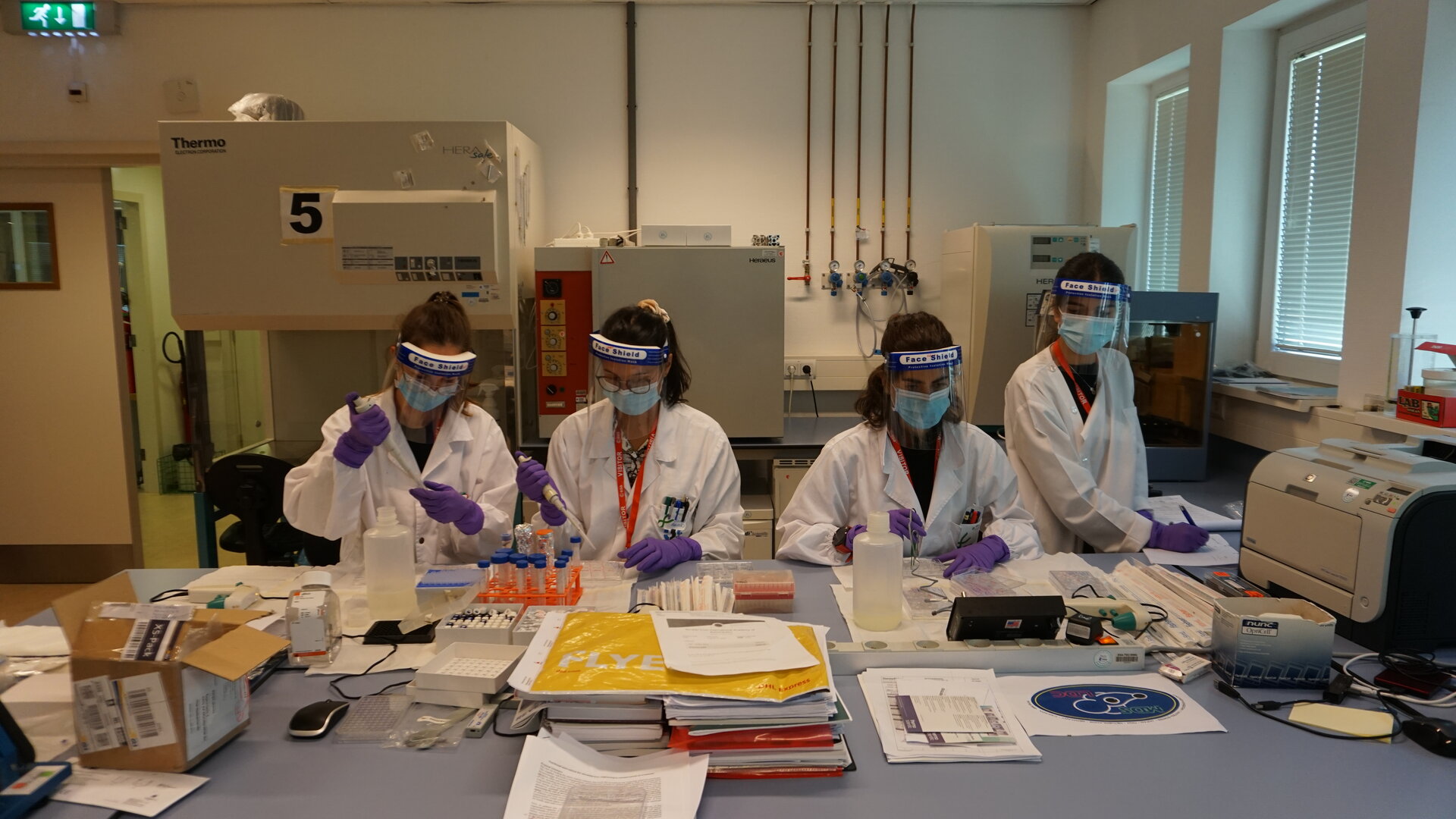Drug delivery research in hyper gravity
Last week, a team of university students from Portugal successfully completed its research under various hypergravity levels in ESA’s Large Diameter Centrifuge (LDC) located at ESTEC, Noordwijk.
With a diameter of 8 m, the LDC offers hypergravity environments from 1 to 20 g simulated by the centripetal forces due to rotation. Within the LCD, scientists can conduct studies involving cells, plants and small animals, as well as physical science and technology demonstrations. Data acquired in the LDC are particularly important since observations done in microgravity may not be sufficient enough. Therefore, a broader gravity spectrum with gravity levels rising above 1 g can usefully add to the general scientific data set. Another advantage of the LDC is that the different g levels can be controlled for an extended period of time (even up to 6 months, although students in the SYT! campaign will only use it for 2,5 days) with a constant supply of power, gas or liquids.

The team has been developing its experiment since the selection last October 2019. During this period, they not only learned how to prepare for scientific research in another establishment, but all team members were also highly active in project and financial management, logistics, coordination and outreach. An additional challenge this year was the Covid-19 pandemic that affected all aspects of their project. This made the SYT! campaign extraordinary in terms of learning goals for students. As the leader of the team mentioned, “Being at the European Space Agency for the "Spin Your Thesis!" campaign was a truly unforgettable experience. The preparation for the campaign was not easy since everything has to be programmed in advance and taking into account the pandemic situation. It was hard work but was absolutely worth it!”
Composed of four Portuguese PhD students specialized in nanomedicine and translational drug delivery from University of Porto i3S group, the Artemis team investigated the role of increased gravity stress on permeability of an intestinal cell line using specialised transwells which allows to culture and test permeability in a variety of ways, namely electrical resistance and ability for compounds to traverse the monolayer of cells.
Systemic delivery of orally-administered biopharmaceuticals remains a real challenge due to rapid enzymatic degradation in the stomach and gut and minimal absorption in the gastrointestinal tract. Nanoparticle formulations and encapsulation of drugs have been extensively studied as a strategy for the effective treatment of several diseases, since they are a strategy to overcome those biological obstacles and to improve the delivery of biopharmaceuticals through biological barriers.

The team believe that by investigating the cellular model used to test the absorption of biopharmaceuticals under environmental stresses such as shear stress and increased hydrostatic pressure would yield accurate results on the permeability of intestinal epithelium.
There is plenty more work and analyses to be performed back in the university of Porto labs, and the team is enthusiastic about the experience, “We were able to contact with professionals specialized in the gravity field, which allowed us to acquire new knowledge and improve our practical skills. This was a unique experience, both personally and professionally that will never be forgotten. We would recommend anyone to go on this fantastic ride!”
If you want to know more about this project, you can follow them on Twitter. Watch the team discussing their research in Portuguese.
The employees working at the LDC and at ESA Academy enjoy working with the students. “Every year, Spin Your Thesis! brings new students who are so eager to perform top quality science on this centrifuge, said Nigel Savage, Programme Coordinator for university student experiments. “Their boundless enthusiasm is contagious and we do everything to help them achieve their goals. We are confident that their first ‘professional’ encounter was positive for them and that they will pursue their career in gravity related research.”
The first part of our SYT! 2020 campaign has been successfully completed but stay tuned for the second team’s experiment “TOFU”, which will investigate the degeneration of neurons via tau protein aggregation in hypergravity.
If you are interested in participating in the SYT! campaign, please click here and see how you can propose and conduct your own experiment in altered gravity.
We are looking forward to the SYT! 2021 campaign and we hope to see you there!


